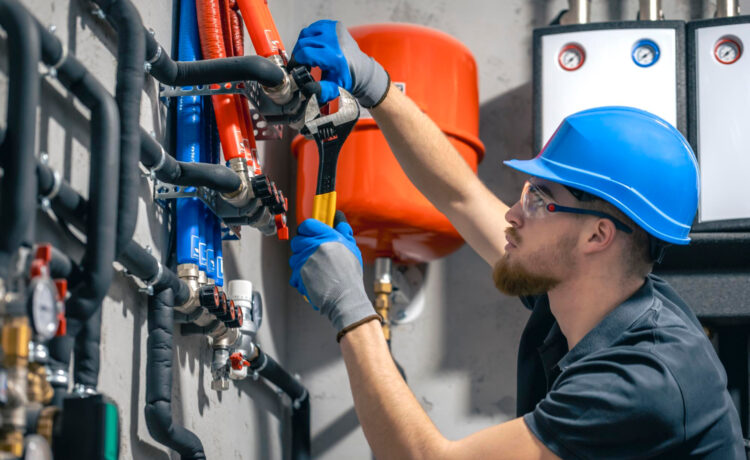When it comes to gas installations, many homeowners wonder if it does really matter who does the job, as long as they seem skilled? The answer is simple: it matters a great deal. A Gas Safe registered engineer can guarantee the safety of every intervention and the avoidance of all risks. Read on to find out why!
What a Regular Installer Does
A regular installer has hands-on experience in various types of work—plumbing, boilers, radiators, and sometimes even certain interventions on gas appliances. Often, these installers have learned their trade on-site, relying on routine and quick fixes.
The problem is that when working with gas, “experience” alone isn’t enough. Every detail matters: pipe sizing, sealing, ventilation, pressure tests. An unregistered installer may finish the job in a way that looks fine on the surface. But what remains hidden—the small leaks or improvised fixes—can, over time, turn into a serious danger.
Understanding What It Means to Be a Gas Safe Registered Engineer
A Gas Safe registered specialist has completed specific training, formal tests, and evaluations. For instance, in the UK, everyone who works with gas legally must be registered with the Gas Safe Register. This certification ensures that individual adheres to high safety standards uses proven methods and can spot dangers that might not be obvious to an untrained eye. Also, since they have to keep passing tests to stay accredited you’re betting on present skill not a long-lost piece of paper.
Safety vs. Improvisation
The main difference between a regular installer and a Gas Safe engineer is that the former often relies on improvisation, while the latter follows clear rules.
For instance, a gas boiler installed by a regular installer may seem to work normally but lack a proper flue system. The result? A risk of carbon monoxide poisoning—a silent yet deadly hazard. On the other hand, a Gas Safe engineer knows exactly what checks must be carried out and leaves nothing to chance.
Legal Responsibility
Only a Gas Safe registered engineer can issue the documents required to legally commission gas appliances. If you choose a regular installer and something goes wrong, your insurance company may refuse to cover the damages. Even worse, you are legally responsible for the risks created. In short: a regular installer gives you a job “at your own risk,” while a Gas Safe engineer provides assurance that everything is legal, tested, and properly documented.
Real Cost of Your Choice
Initially, one would think an average installer would be less expensive. However, what may end up happening is that seemingly minor price difference will accrue into much higher costs later on in repairs, fines, or even major damage caused by an incident. In stark contrast, a Gas Safe registered engineer not only does the job right the first time but also gets your system operating in top condition and safe. It is an investment in your house and in peace of mind.
If you are looking for an engineer, always ask whether he is on the Gas Safe Register. The card of every authorized engineer can be checked online and should be asked for. Also ask for which appliances they have qualifications, as certification can be in boilers, fires, cookers, or other things.
Don’t Forget
The difference between a regular installer and a Gas Safe registered engineer is the difference between improvisation and guaranteed safety. Gas doesn’t forgive mistakes, and the only responsible choice is to work with certified professionals.
If you want to be sure your gas installation is safe, book a visit today with a Gas Safe registered engineer from Expert Heating Solutions Ltd!







